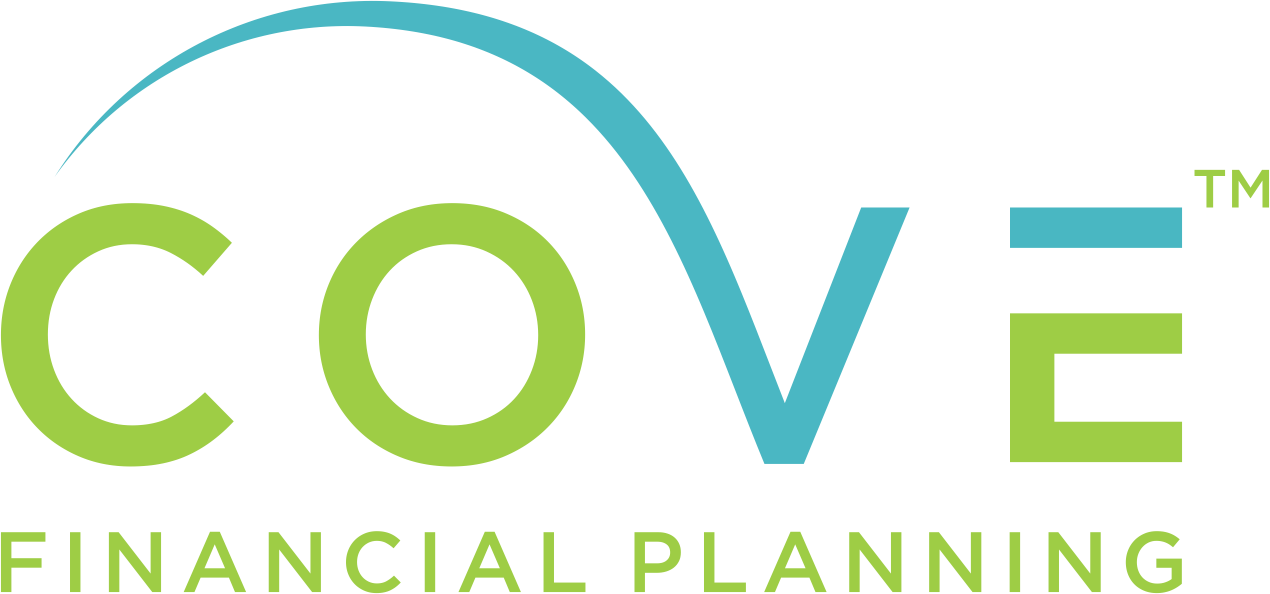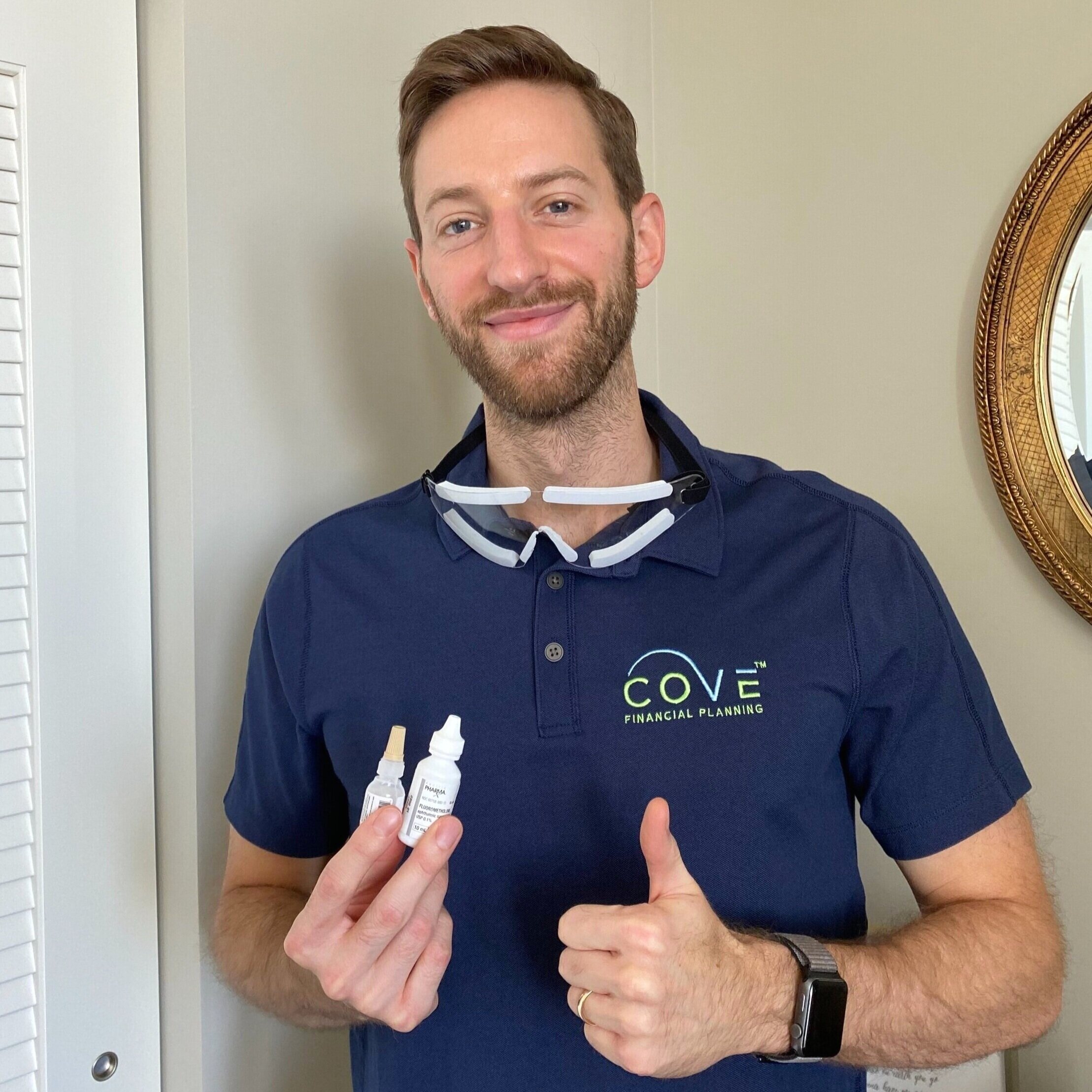Why I Didn't Use my HSA for Laser Eye Surgery
I’ve worn glasses or contact lenses since I was 12 years old. My twin brother got his first pair when he was 8 (it’s not a competition). After he went through laser eye surgery, I figured it must not be so bad. After all, in my mind, he served as the proverbial guinea pig in an experiment to prove the procedure’s safety and effectiveness.
As I searched around for the right surgeon, I thought about how I’d pay for this very non-essential, elective surgery. As such, my vision/health insurance wouldn’t cover any of the cost, and I had to foot the bill out of pocket.
My first instinct was to use my Health Savings Account (HSA), which has grown since making maximum contributions over the last several years. I figured I could take the money out tax-free—since LASIK and PRK are qualified medical expenses—and leave my cash reserve untouched. The downside, of course, is that the big chunk of money from my HSA that I would use for the surgery wouldn’t stay invested with a high probability of growing over time.
I decided to heed the advice that I tell many of my clients, and I left my HSA untouched. Instead, I paid for the procedure with my travel credit card (to get the points) and paid the card balance right away. In the long run, with a reasonably long time horizon until my own retirement, I was better off paying out of pocket and letting my HSA do it’s thing. And, yes, the cool sleeping glasses pictured were included in the price.
How do HSAs work?
Health Savings Accounts allow you to put away money on a pre-tax basis for qualified medical expenses. Unlike Flexible Spending Accounts (FSAs), HSAs allow you to carry money forward year-after-year.
When you save into an HSA, you get to deduct that amount from your taxes during that year. In addition, when you use your HSA for medical expenses, you can take the money out tax-free. This is one of the rare accounts with triple-tax benefits:
Tax deductible contributions
Tax-free growth
Tax-free withdrawals (for medical expenses)
Not even the beloved Roth IRA can hold a candle to HSAs, since you don’t get a tax deduction when you save into your Roth. In short, HSAs are incredible, and when used properly, they can lower your tax bill now and in the future.
Keep in mind, in order to save into an HSA, you need to be enrolled in a High-Deductible Health Plan (HDHP), which basically covers preventative care before your deductible kicks in. Specifically, the minimum deductible for this type of plan is $1,600 for individuals and $3,200 for a family for 2024.
As far as saving into HSAs, individuals can make an annual maximum contribution of $4,150, and families can contribute up to $8,300 for 2024. If you are eligible to contribute into an HSA, make sure you find out if your employer will make matching contributions. Sometimes, your company might require you to do a health screening or some other assessments to qualify for a matching contribution…worth it! Learn more about how HSAs work from the IRS.
Let’s do the math
Let’s run through a few scenarios for funding a procedure such as laser eye surgery. For simplicity, let’s say you’re 35 years, and you’re paying $4,000 for LASIK. You have the option to pay for the procedure using your cash reserve or your HSA. Let’s assume that you plan on retiring at age 65, and you can earn an average 7% return each year in the market. Let’s also assume that your blended income tax rate now and in retirement is 18%, and your capital gains tax rate (the tax on buying and selling stocks/bonds) is 15%, now and in retirement.
Option 1: Use your HSA
If you use your HSA to fund the $4,000 procedure, you won’t pay any taxes to pull the money out, since laser eye surgery is a qualified medical expense. Plus, you would have already gotten the tax deduction for contributing that money into your HSA in the amount of $720, to be exact–congrats!
You would have saved $720 in taxes by making your initial, tax-deductible contribution of $4,000 into your HSA ($4,000 x 18% income tax rate = $720). The $4,000 outside of your HSA (since you used your HSA to fund the procedure in this scenario) would accumulate to a total of $30,449 after growing at an assumed 7% per year for 30 years. If you withdraw this entire balance at age 65, you would pay $3,967 in long-term capital gains taxes on the growth of your investments. Your growth is your ending balance minus your beginning balance ($30,449 - $4,000 = $26,449. So, your tax bill for this withdrawal of $3,967 would be your growth times your capital gains tax rate rate ($26,449 x 15% = $3,967).
Long-term tax cost: $3,967
Option 2: Don’t use your HSA
If you don’t use your HSA to fund your surgery, and instead, you pull funds from your cash reserve, that $4,000 in your HSA is free and clear to grow in the market until you retire. As with the scenario above, you would still have saved $720 in taxes by making your initial contribution of $4,000 into your HSA.
Again, you would accumulate a total of $30,449 by leaving the $4,000 in your HSA to grow at an assumed rate of 7% per year for 30 years, which is also true of the example above with growth in a non-HSA investment account. The real benefit, however, comes when you withdraw these funds in retirement. If you withdraw this entire balance from your HSA at age 65, you would pay $0 in taxes, since distributions from HSAs for qualified medical expenses is 0% ($30,449 x 0% = $0).
Long-term tax cost: $0
In summary, you could save $3,967 by paying for laser eye surgery with cash as opposed to using your HSA, because your HSA would benefit from tax-free growth over time. Investors with a long time horizon benefit most from maintaining and growing their HSAs and eventually using them in retirement, as opposed to using them throughout their lives as medical expenses arise.
For most of us, health expenses will only increase, especially in retirement, so it makes financial sense to grow the balance in your HSA as much as possible to take advantage of the tax-free compounding for eventual qualified distributions in retirement, when you will likely need these funds the most.
This benefit assumes that you have an adequate cash reserve throughout your life to fund expected and unexpected medical expenses in addition to other emergencies. Learn about the best ways to build a cash reserve.
In the end, everybody’s situation is different, and while most investors can take advantage of HSAs to lower their taxes and maximize retirement income, it’s important to understand how you can use them best in your unique family and health situation.
You can learn more about 5 Common Open Enrollment Questions as you explore your group benefits for next year.
If you want learn how to lower your taxes with HSAs and other accounts, feel free to reach out to me at Ben@coveplanning.com or schedule a free consultation call.
Sign up for Cove’s Build Your Wealth Newsletter to stay informed with the latest personal finance insights!
Ben Smith is a fee-only financial advisor and CERTIFIED FINANCIAL PLANNER™ (CFP®) Professional with offices in Milwaukee, WI, Evanston, IL and Minneapolis, MN, serving clients virtually across the country. Cove Financial Planning provides comprehensive financial planning and investment management services to individuals and families, regardless of location, with a focus on Socially Responsible Investing (SRI).
Ben acts as a fiduciary for his clients. He does not sell financial products or take commissions. Simply put, he sits on your side of the table and always works in your best interest. Learn more how we can help you Do Well While Doing Good!
Disclaimer: This article is provided for general information and illustration purposes only. Nothing contained in the material constitutes tax advice, a recommendation for purchase or sale of any security, or investment advisory services. I encourage you to consult a financial planner, accountant, and/or legal counsel for advice specific to your situation. Reproduction of this material is prohibited without written permission from Ben Smith, and all rights are reserved. Read the full Disclaimer.


